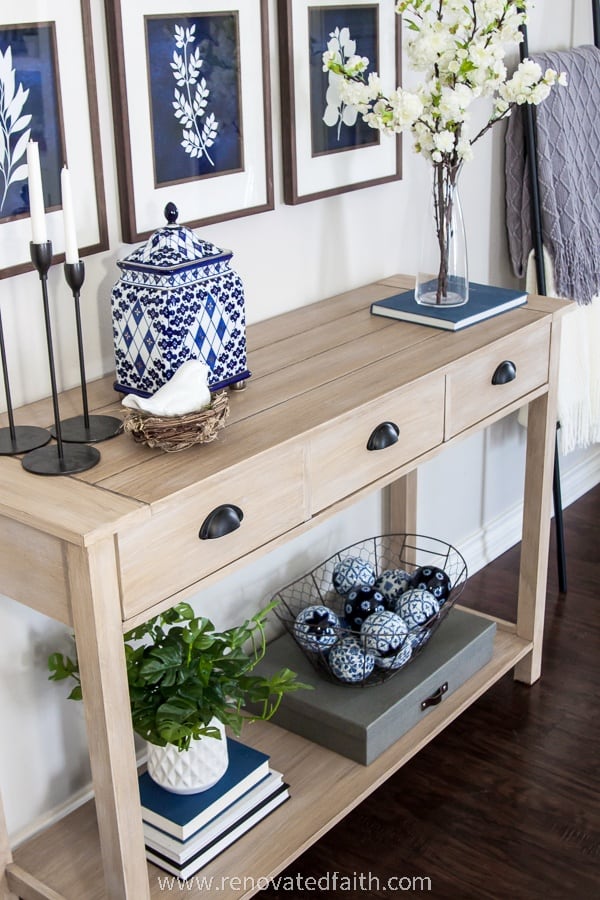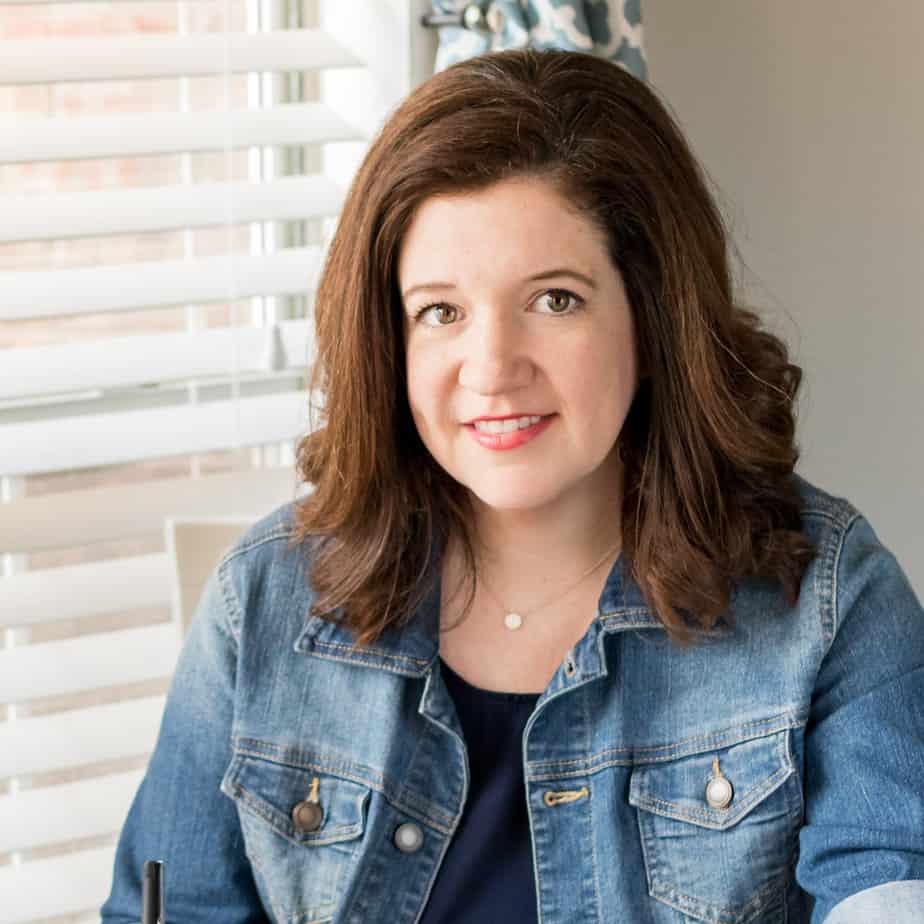Modern Idolatry (How God Sets Us Free from Unexpected False Gods)

This devotional goes with a tutorial on painting laminate: How to Paint Laminate Furniture Like a Pro
Nothing would put me to sleep faster than reading through Leviticus. Every New Year, I would start my “Read Through the Bible in a Year” plan, and it was pretty consistent for the first couple of months. However, it never failed that once I reached Leviticus, I got bogged down with the rules, ceremonies, and offerings that seemed all too foreign to my lifestyle.
Fortunately, this year was different. To hopefully pique my interest in Leviticus, I decided to do a little research online, and surprisingly, I got far more than I bargained for.
As I tried to envision life as a 30-something Israelite woman, the first couple of chapters came to life for me. Her morning started very differently from mine….

“This morning, my husband rose at dawn to choose the morning’s sacrifice – unfortunately, this particular lamb was one of my daughter’s favorites. We own lots of livestock but we strive to select only animals that are perfect, or as close as possible, because that is what the burnt offering requires.
As my husband stands in line at the outer temple, Israelites from far and wide make their way to the end of the line at the Tabernacle. Surrounded by the sight, smell, and sounds of young animals led to slaughter, he dreads these trips, but he faithfully goes morning and evening. When reaching the front of the line, each person must lay his hand on the head of the animal in order to identify with it – to help us remember the price of our sinfulness. There is nothing more heart-wrenching than seeing a lamb innocently sacrificed for your own sinfulness.”
As I read through Leviticus 1 with fresh eyes, I came to realize that this was an everyday occurrence for a Jewish family as Moses led them through the wilderness. The male in the family would not only go once a day to sacrifice an animal, but twice a day usually, and even three times on the Sabbath and special occasions. There were various other kinds of sacrifices, but the burnt offering was most common.
As grueling as these repeated trips to the Tabernacle must have been, the Israelites knew the burnt offerings were a means to avoid God’s wrath and obtain favor, as the offering itself was a fragrant offering to the Lord. Their sacrifice symbolized their faith in God and intention to love Him with all their heart, soul mind, and strength. They also served as a reminder of the high cost of their sin and their constant need for forgiveness.

The Israelites of that day should have seen that a better method of atonement for their sin was coming. They saw how the death of Isaac was prevented by the sacrifice of the ram and could see their salvation would be carried out in some greater way in the future…but how?
It is written in John 1:29, “Behold, the Lamb of God, who takes away the sin of the world!” Now, animal sacrifice is obsolete because Jesus Christ was the ultimate unblemished sacrifice for our sins once and for all. We no longer need to make daily trips to the Tabernacle because Jesus is the perfect sacrifice once we come into a saving relationship with Him.
The burnt offering is obsolete, but its application to our worship is not. The burnt offerings were unique from many of the other types of offerings because the whole animal was consumed on the altar as opposed to only the part of the sacrifice.
Romans 12:1 states, “Therefore, I urge you, brothers and sisters, in view of God’s mercy, to offer your bodies as a living sacrifice, holy and pleasing to God—this is your true and proper worship.” Under the New Covenant, Christian service in church and community is compared to a sacrifice as we focus on worshiping Him in how we live our lives. As the burnt offering was a TOTAL sacrifice, our lives as a whole should be focused on Him.
God wants all of us. He designed us to be consumed with Him. When false idols compete with our time, resources, and attention, we worship them in a sense. The problem with false idols is that our hearts, minds, and bodies were only designed to worship one thing – God. When we put stock in the worship of false gods, it will damage us in one form or another. Timothy Keller said in Every Good Endeavor, “Our bodies are not designed to handle sin.”
The “false god” I struggle with most is food. Too often I go to food for comfort or to celebrate small personal victories – things I should go to God for. So many times, instead of consuming food, I allow it to consume me. If I continued in this behavior, the repetitive nature of my sin would eventually lead to an unhealthy lifestyle not only physically but spiritually and emotionally. God wants to be our “all in all,” and that’s how He designed us – We are most fulfilled when we are consumed with Him. To be consumed with God means that He is our source of strength, comfort, and joy.
The Israelites struggled regularly with the sin of worshiping other gods. Before Moses could even get down Mt. Sinai with the 10 commandments, they were already making offerings to their golden calf. Time and time again they proved to be unfaithful to His law. He knew man would need constant reminders to keep them focused on Him.
We no longer make daily trips to sacrifice a perfect lamb from our flock because the ultimate sacrifice is made. Our debt was paid in Jesus Christ. May we rest in knowing that He is the only one that is worthy of our praise as we were designed to be devoted to Him. Nothing else can compare to the joy and fulfillment of living a life consumed with Him.

Karin Peters is a DIY expert and the creator of Renovated Faith. She is a furniture painter, a home design consultant, and a tenacious problem solver determined to help you transform your house into a home. With 17 years of experience with DIY home improvement, she researches and analyses professional processes to adapt them to be easy and cost-effective for DIYers. She then tests every project and product before it appears on the site in a detailed, step-by-step format. After attending Texas A&M University, she received her Master of Divinity with Biblical Languages at Southwestern Baptist Theology Seminary. Her passions unite in Renovated Faith, which shows readers how to create a home that serves them so they can pursue their God-given purposes. About Renovated Faith | Editorial Policy | Facebook | Twitter | LinkedIn
